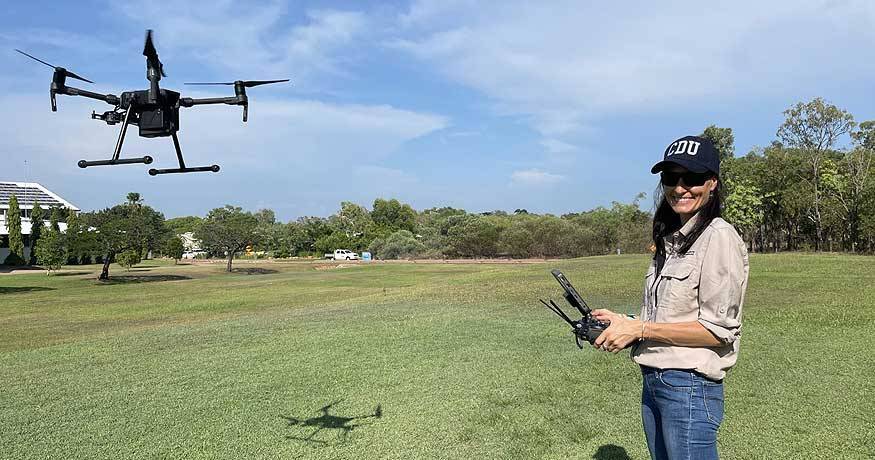
The delivery of time-critical medical items is a serious limitation and cost for healthcare in remote and regional Australia.
NT Health, iMove Australia and Charles Darwin University (CDU) have partnered to develop a project to allow for the delivery of medical supplies by remote piloted aircraft (RPA), more commonly known as drones, to remote communities.
Chief remote drone pilot for CDU, Rebecca Ludgate, is playing a key role in the joint iMOVE project trialling state-of-the-art medical drones that will deliver potentially life-saving medicines to Aboriginal remote communities in the Top End.
The first 10km trial expected in the new year, yet Rebecca Ludgate anticipates that there is a lot of work that is required behind the scenes before the first drone can even take off.
“There is so much behind-the-scenes work involved in remote BVLOS (beyond visual line of sight) drone flying. People just think it’s about launching and landing, but a big part of my job is organising where we’re going to fly and seeking approvals. There are a lot more challenges and responsibilities than you’d need for a manned drone,” she says.
The Civil Aviation Safety Authority must give its approval to fly, as well as traditional landowners of the Aboriginal communities who live near the take-off and landing sites and along the route. The timing of the trial aims to avoid the wet season, which starts late November / early December, when deluges block roads and access to remote communities.
The Northern Australian Centre for Autonomous Systems (NACAS), through which CDU is supporting the project, is working on developing capabilities for future operators with plans to begin offering the Certificate III in Remote Drone Pilot Licence from 2022. Ms Ludgate will be sharing her expertise with students of the training on field days and signing off on competencies for the course.
“Drones is a big industry and it’s getting bigger, developing in a massive way, creating lots of jobs, plus the capabilities of drones keep increasing. It’s a great industry to be part of,” Ms Ludgate says.
“The NACAS team is trailblazing, if we can achieve our milestones of delivering medical aid I think a lot of parties will be interested in the project.”
